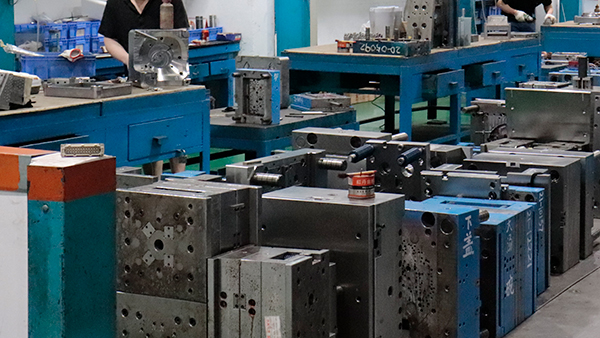In the manufacturing process of injection molds, material selection is a critical aspect of plastic injection molding. It directly impacts the mold’s performance, lifespan, and production costs. Injection molds consist of multiple precision components, including but not limited to the core, mold base, guide pins, guide bushings, ejector sleeves, ejector pins, sprue pullers, and various plates, each requiring precise material selection based on specific needs.
The core, being the heart of the mold, demands the most attention in material selection. For molds with basic requirements, 45 and 50 carbon steels are commonly used due to their cost-effectiveness and practicality. For cores requiring standard precision, P20 pre-hardened plastic mold steel is favored for its excellent machinability and hardness. When high standards are required, 718 pre-hardened plastic mold steel stands out with its superior wear resistance and toughness. For ultra-precision molds requiring a mirror finish, 738 (4Cr2NiMnMo) or NAK80 mirror-finish plastic mold steel is indispensable. Additionally, in corrosive production environments, M300 corrosion-resistant steel becomes an essential choice.
The mold base, which supports the entire mold structure, also requires careful consideration for its stability and strength. Standard mold bases often use 45 carbon steel as a basic material, while those requiring higher load capacity tend to use 50 or higher-grade 55 mold steel. For injection molds that demand the utmost aesthetic quality and precision, GS638 (equivalent to P20 in the U.S. standard and 42CrMo in the Chinese standard) mold steel is the material of choice, offering excellent comprehensive properties.

The guide pins, as key components guiding the mold’s opening and closing, have material choices that directly affect the mold’s precision and smooth operation. Common materials for guide pins include carburized and quenched 20# (S20C) or 20Mn2B (SMn420) steels, which can achieve hardness levels of over 55HRC after treatment. Surface-quenched T8A and T10A steels have hardness controlled below 55HRC, while 45# steel, treated through tempering, surface quenching, and low-temperature tempering, also meets high hardness requirements (≥55HRC).
In summary, the material selection process for injection mold manufacturers is a complex decision-making process that comprehensively considers performance needs, cost control, and production efficiency. The goal is to ensure high-quality injection molding production through scientific material selection.
DAYIN Plastic Products Co., Ltd. has been specializing in mold manufacturing for 30 years, offering one-stop OEM/ODM services as an injection molding contract manufacturer. We excel in optimizing product structures to reduce injection molding costs. With a complete product design and manufacturing team, we provide exceptional product design services. Equipped with mold processing equipment and years of mold-making experience, we offer plastic product manufacturing services to customers. With a 50,000-square-meter production facility, 30 years of mold development experience, over 50 R&D personnel, and more than 100 injection molding machines, DAYIN ensures comprehensive solutions for diverse manufacturing needs.
